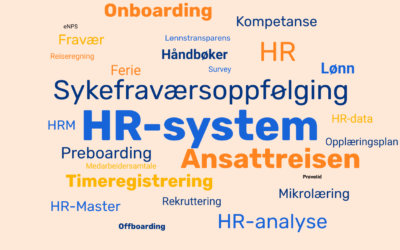We often hear about the importance of onboarding, the process that introduces and integrates new employees into the business. But we shouldn't underestimate the value of pre-boarding. That all-important time between the job offer and the first day of work.
Preparation paves the way
Pre-boarding has the potential to alleviate the uncertainty and tension that can often accompany the period between accepting the job offer and starting. By offering relevant information, such as company culture, workplace dynamics, colleagues and tasks, new employees can feel more prepared and confident about what the future holds. Not only can this lower stress levels, but also increase the motivation of the new employee.
Pre-boarding creates security
Pre-boarding plays a major role in forming first impressions of the company and its culture. A thorough pre-boarding process sends signals to new employees that they are already valuable to the organization before they actually start working. It builds trust and engagement, which in turn has a positive effect on the working environment and company culture, and can also reduce turnover.
Ready for your first day of work
Pre-boarding has the power to equip new employees for the tasks ahead, boosting productivity from day one. By receiving relevant training and necessary information in advance, new employees can start work immediately, without having to spend valuable time familiarizing themselves with routines and systems.
Making a difference
Pre-boarding is an important step in the recruitment process - it's an opportunity for companies to stand out and show that they take responsibility for a successful start for their new employees. Through a positive pre-boarding experience, companies can attract the best talent while reducing recruitment costs and time.
The key to building a strong employer brand
Pre-boarding is also a critical part of building a strong EB (employer branding) brand. Through a well-structured pre-boarding experience, the company can develop a reputation as an attractive employer among candidates and other stakeholders. This in turn can positively impact the recruitment process and strengthen the company's reputation.



